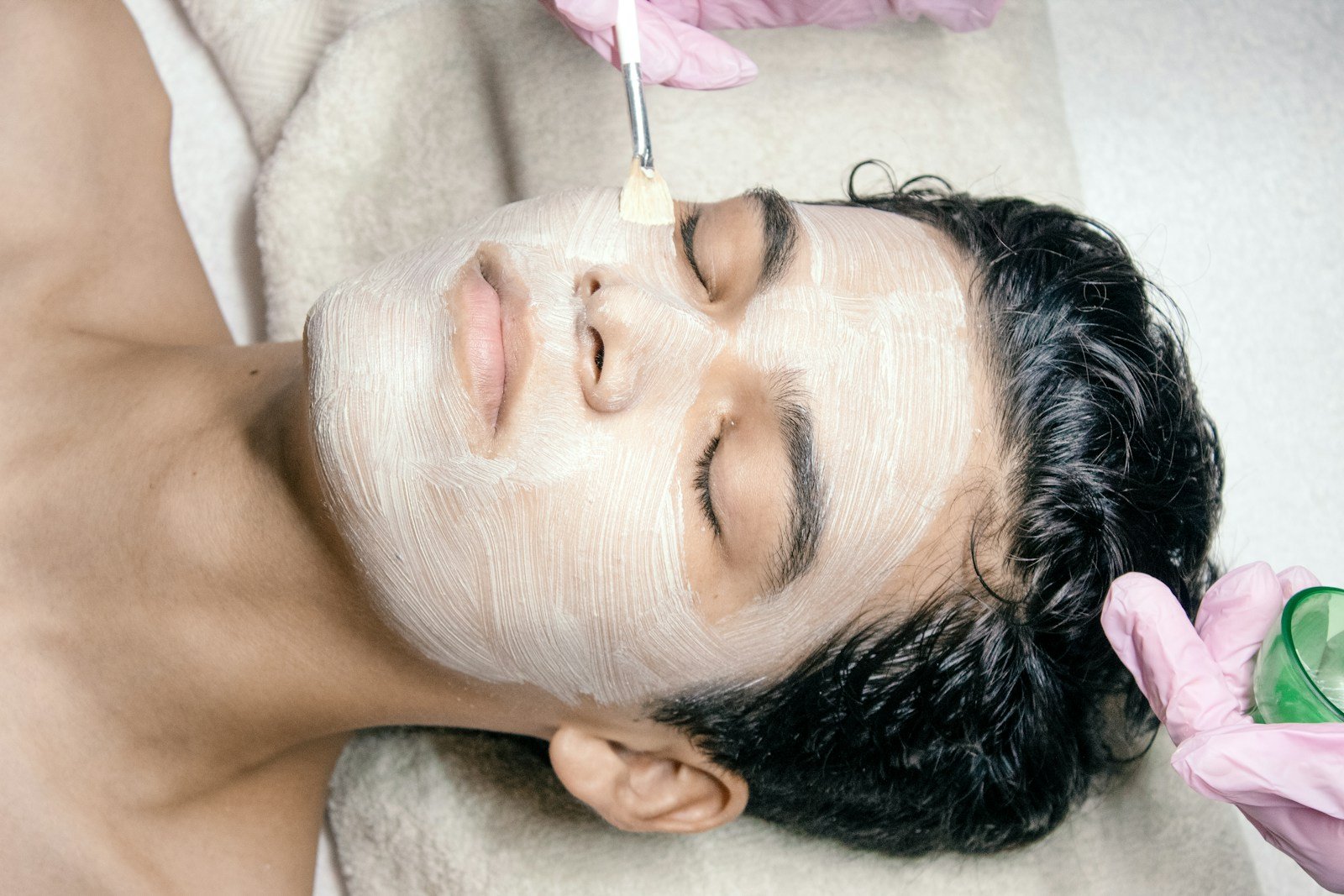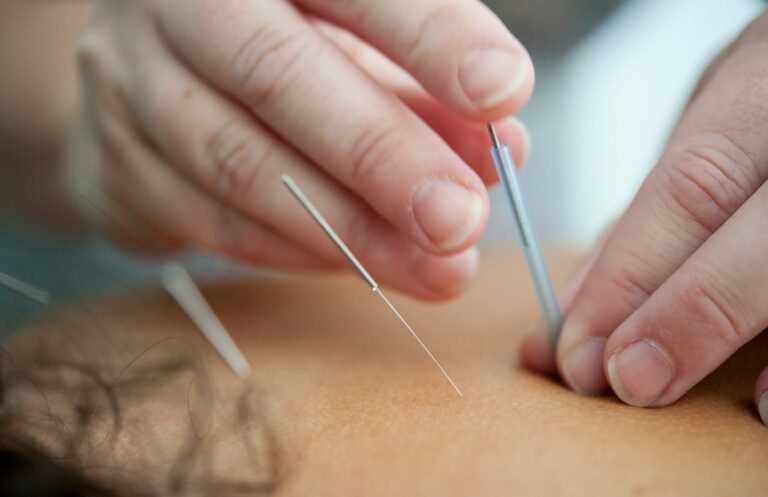How to Improve Your Skin Health Naturally
Skin health is a reflection of your overall well-being, and by adopting natural methods, you can achieve a radiant complexion. You have the power to enhance your skin through proper hydration, balanced nutrition, and mindful habits. In this post, you will discover effective strategies to nourish your skin from within, minimize environmental damage, and promote a youthful glow. Embrace these natural approaches to transform your skincare routine and support your skin’s resilience for a healthier future.
Key Takeaways:
- Incorporate a balanced diet rich in fruits, vegetables, and healthy fats to nourish your skin from within.
- Stay hydrated by drinking plenty of water throughout the day, which can help maintain elasticity and moisture in the skin.
- Establish a consistent skincare routine that includes cleansing, exfoliating, and moisturizing to keep your skin clean and healthy.
- Protect your skin from sun damage by using natural sunscreens and avoiding prolonged exposure to direct sunlight.
- Manage stress through practices such as yoga, meditation, or regular exercise, as stress can negatively impact skin health.
The Powerful Role of Nutrition in Skin Vitality
Your skin reflects what you put into your body, making nutrition a key player in maintaining skin health and vibrancy. A diet rich in specific nutrients can enhance your skin’s resilience, providing it with the building blocks needed for repair and regeneration. Deficiencies or imbalances in your daily intake can lead to issues such as dull complexion, increased acne, or premature aging, showcasing the intimate relationship between what you consume and how your skin looks and feels.
Everything from hydration levels to antioxidant consumption plays a role in skin vitality. For instance, vitamins A, C, and E, along with vital fatty acids, are known to support skin structure and function. By paying attention to your nutritional habits, you can effectively create an environment in your body that promotes healthy skin from within, paving the way for a natural glow that’s hard to replicate with external products alone.
Key Nutrients for Radiance
Specific nutrients have been recognized for their ability to improve skin texture, tone, and elasticity. Vitamin C is a standout, known for its role in collagen synthesis which helps maintain skin firmness. Incorporating sources of this vitamin, like citrus fruits, bell peppers, and strawberries, can encourage a plump and youthful appearance. Additionally, omega-3 fatty acids found in fatty fish, flaxseeds, and walnuts support the skin’s lipid barrier, keeping it hydrated and reducing inflammation.
Zinc and selenium are another duo you shouldn’t overlook; these minerals aid in the skin’s healing process and provide protection against oxidative stress. Foods like pumpkin seeds, chickpeas, and Brazil nuts can help ensure you receive adequate amounts, making it easier for your skin to fend off issues such as acne and dryness.
Foods to Embrace and Avoid
Opting for whole, unprocessed foods can dramatically enhance your skin health. Vegetables like spinach, kale, and sweet potatoes are packed with vitamins and antioxidants that combat skin aging and help maintain a youthful glow. Berries, rich in antioxidants, combat free radicals and protect you from environmental stressors. Consider adding nuts and seeds for bouts of healthy fats, promoting hydration and elasticity. On the flip side, staying clear of excessive sugar and refined carbohydrates can prevent spikes in insulin, which are often linked to acne outbreaks.
In addition to these choices, limit your intake of dairy products and high-sodium foods, which can exacerbate breakouts and puffiness. Processed foods, laden with additives and preservatives, may also contribute to skin irritation or dullness. Striving to create a balanced plate rich in nutrient-dense options will not only benefit your skin but also improve your overall health, highlighting the profound impact of your dietary decisions.
Harnessing Hydration: The Secret Ingredient
The Impact of Water on Skin Elasticity
Water plays a pivotal role in maintaining your skin’s elasticity, helping to keep it smooth and supple. Adequate hydration enables skin cells to maintain their structural integrity, reducing the appearance of fine lines and wrinkles. Studies have shown that even mild dehydration can lead to a noticeable decline in skin turgor, contributing to a dull and lifeless complexion. When you are properly hydrated, your skin appears plumper and more vibrant, which can enhance your overall appearance.
Moreover, sufficient water intake supports the skin’s lipid barrier, which is necessary for retaining moisture. This barrier helps prevent transepidermal water loss, meaning that hydration is not just about how much water you drink but how well your skin retains it. An adequately hydrated skin barrier enhances your skin’s ability to fight off environmental stressors and irritation while fostering a healthy glow.
Best Practices for Optimal Hydration
To achieve optimal hydration, focus on both your internal and external hydration strategies. Start by aiming for at least eight 8-ounce glasses of water a day, adjusting for your activity level, climate, and individual needs. Incorporating water-rich foods like cucumbers, oranges, and celery into your diet can further bolster your hydration efforts. These foods not only contribute to your overall water intake but also provide necessary vitamins and minerals that support healthy skin.
In addition to drinking water, consider the importance of topical hydration. Using moisturizers containing humectants like hyaluronic acid can attract moisture to your skin and lock it in. Applying these products right after showering, while your skin is still damp, enhances their efficacy. Incorporating a hydrating face mist throughout the day can also provide an instant boost and keep your skin feeling fresh and revitalized.
To maintain optimal hydration, customize your approach by considering factors such as local climate, humidity levels, and your skin type. For instance, during dry winter months, you might need to increase your overall water intake and apply richer creams, while humid conditions may require lighter, non-comedogenic products. Staying attuned to your skin’s needs, adjusting your hydration methods, and being mindful of replenishing lost moisture from environmental exposure can lead to visibly healthier skin.
Natural Remedies and Their Proven Benefits
Essential Oils: Nature’s Skin Healers
Essential oils, derived from plants, possess powerful healing properties that can greatly enhance your skin health. Oils such as tea tree, lavender, and frankincense have been shown to combat acne, reduce inflammation, and promote overall skin rejuvenation. For instance, tea tree oil contains antimicrobial properties that are effective against acne-causing bacteria, while lavender oil helps calm irritation and improve skin tone. A few drops mixed with a carrier oil can create an effective topical treatment, allowing you to harness the benefits of these oils without risking irritation.
Another standout, rosehip seed oil, is rich in vital fatty acids and antioxidants, which can help repair damaged skin and reduce the appearance of scars and fine lines. Studies indicate that regular application can lead to a noticeable improvement in skin texture and elasticity. As you explore the diverse range of vital oils available, tailor your choices to your specific skin concerns for targeted results.
Herbal Treatments that Transform
Herbal treatments have been utilized for centuries and are backed by various studies demonstrating their positive effects on skin health. Ingredients like aloe vera and calendula are renowned for their soothing properties, helping to hydrate and heal irritated skin. Aloe vera not only provides moisture but also contains compounds that promote wound healing and reduce redness, making it perfect for sunburns or minor cuts. Calendula, on the other hand, boasts anti-inflammatory and antifungal properties that can assist in clearing up skin irritations.
Beyond these, herbs like chamomile and green tea offer additional benefits that can refresh and revive your complexion. Chamomile’s anti-inflammatory capabilities can reduce puffiness and soothe sensitive skin, while green tea, rich in antioxidants, combats free radicals, potentially delaying signs of aging. Incorporating these herbs into your skincare routine—be it in the form of infused oils, topical creams, or even teas—can yield transformative effects that enhance your skin’s health and appearance.
Herbal treatments can be as easy as brewing a cup of green tea and using cooled bags on your eyes to reduce puffiness, or applying aloe vera gel directly from the plant for an instant soothing effect. These versatile remedies not only utilize the abundance of nature in your favor but also empower you to take an active role in your skincare journey.
The Science of Sun Protection
Understanding the Risks of UV Exposure
Ultraviolet (UV) radiation from the sun is a major factor in skin damage and premature aging. Studies have shown that repeated exposure to UV rays can lead to DNA damage in skin cells, increasing the risk of skin cancer significantly. In fact, approximately 90% of nonmelanoma skin cancers and up to 86% of melanoma cases are attributed to UV exposure. This highlights the need for effective sun protection, especially considering that even short periods of sun exposure can have cumulative effects over your lifetime.
When UV rays penetrate the skin, they can break down collagen and elastin, leading to wrinkles, loss of firmness, and pigmentation issues such as sunspots. The immediate effects can include sunburn, while long-term effects manifest as changes in skin texture and tone. Understanding these risks allows you to make informed decisions about sun exposure, creating a proactive approach to your skin health that can minimize damage and preserve youthful appearance.
Natural Alternatives to Chemical Sunscreens
Chemical sunscreens often contain ingredients that some individuals prefer to avoid due to concerns over skin irritation or potential hormonal disruptions. Natural alternatives can provide effective protection without these drawbacks. For example, mineral-based sunscreens containing zinc oxide or titanium dioxide create a physical barrier on the skin, reflecting UV rays rather than absorbing them. This method of protection is particularly beneficial for sensitive skin, as it is less likely to cause irritation or allergic reactions.
In addition to mineral sunscreens, certain natural oils, such as coconut and raspberry seed oil, offer a lower SPF protection but can be an excellent adjunct to your skin care routine. These oils contain fatty acids and antioxidants that not only help to hydrate the skin but also provide some level of UV protection. While they shouldn’t replace traditional sunscreens in high UV environments, they can be incorporated into your regimen for additional benefits.
Exploring natural alternatives to chemical sunscreens empowers you to choose products that align with your health values while still protecting your skin. Many brands now offer organic or reef-safe formulations that utilize natural minerals and botanicals, ensuring you can safeguard your skin without compromising on quality or safety. This conscious shift towards natural options not only enhances your skincare routine but also supports sustainable practices that benefit the environment.
Lifestyle Changes That Promote Glowing Skin
The Importance of Quality Sleep
Your skin rejuvenates while you sleep, making quality rest an crucial component of your skincare routine. Aim for 7-9 hours of uninterrupted sleep each night to allow your skin to recover from daily stressors. During sleep, your body increases blood flow to the skin, providing it with oxygen and nutrients that promote cell regeneration. A lack of sleep can lead to dark circles, dullness, and even an increase in breakouts due to the stress hormone cortisol rising in your body. Prioritizing a consistent sleep schedule can dramatically improve your skin’s overall tone and texture.
Creating a calming bedtime routine can further enhance your sleep quality. Consider relaxing activities such as reading a book, practicing meditation, or using crucial oils like lavender to promote relaxation. Ensuring your sleep environment is dark, quiet, and cool will also contribute to more restful and restorative sleep. All these small adjustments can combat the visible signs of aging and leave your skin looking fresh and vibrant upon waking.
Stress Management Techniques for Skin Restoration
Cortisol, the body’s primary stress hormone, can wreak havoc on your skin by increasing oil production and worsening conditions such as acne or rosacea. Incorporating stress management techniques into your daily life not only benefits your mental health but plays a significant role in restoring your skin’s natural glow. Engaging in mindfulness practices such as yoga, deep breathing exercises, or journaling can reduce stress levels and equally benefit skin health by lowering cortisol levels. Additionally, regular physical activity gets your heart rate up, enhancing blood circulation, which helps deliver nutrients to your skin.
Integrating such practices into your routine may require time, but it presents an effective way to control stress response, leading to calmer skin. For instance, setting aside just 10 minutes a day for meditation can reduce negative emotional states and subsequently the impacts they have on your skin’s appearance. In addition, consider exploring hobbies you enjoy that provide respite from daily stressors. Whether it’s painting, gardening, or even enjoying a moment of solitude can work wonders in creating a balanced lifestyle that nurtures both your mind and skin.
Final Words
Upon reflecting on the journey to improve your skin health naturally, it’s clear that adopting a holistic approach can yield remarkable benefits. Focusing on nutrition, hydration, and lifestyle choices plays a significant role in achieving glowing skin. By incorporating a balanced diet rich in antioxidants, staying hydrated, and getting regular physical activity, you can enhance your skin’s radiance and resilience. Additionally, prioritizing stress management through mindful practices like meditation or yoga will work wonders for your overall skin health.
It’s vital to create a personal care regimen that aligns with your needs. You may find it helpful to explore resources, such as the 11 Ways To Get Glowing Skin Without Using Skincare …, to further guide your efforts. Each small change you make can contribute to a more vibrant complexion. Embrace these natural methods, and let your skin reflect the care and attention you give it every day.
FAQ
Q: What are the best natural foods to eat for better skin health?
A: Incorporating a variety of nutrient-rich foods can significantly improve skin health. Foods high in antioxidants, such as berries, leafy greens, and nuts help combat oxidative stress. Additionally, omega-3 fatty acids found in fish, flaxseeds, and walnuts promote a healthy skin barrier. Furthermore, hydration is imperative, so drinking plenty of water and consuming water-rich fruits and vegetables, like cucumbers and watermelon, can support overall skin moisture.
Q: How does proper hydration affect skin health?
A: Staying well-hydrated plays a vital role in maintaining skin health. Water helps to keep the skin hydrated from within, preventing dryness and flakiness. It also supports the elimination of toxins and can improve circulation, leading to a more radiant complexion. Aim to drink at least 8 glasses of water a day, and consider herbal teas or infused water with fruits and herbs for added flavor and benefits.
Q: What natural skincare ingredients should I look for in products?
A: When selecting skincare products, look for natural ingredients that nourish and protect the skin. Key ingredients include aloe vera for its soothing properties, coconut oil for its moisturizing effects, and shea butter for its antioxidant properties. Additionally, botanical extracts like green tea and chamomile are known for their anti-inflammatory benefits. Avoid products with synthetic fragrances and harsh chemicals that can irritate the skin.
Q: How can stress management contribute to better skin health?
A: High-stress levels can lead to skin conditions like acne and eczema due to the increase in cortisol and other stress hormones. Practicing stress management techniques such as yoga, meditation, deep breathing exercises, or engaging in hobbies can help reduce stress and support better skin health. Prioritizing sleep and regular physical activity also contributes positively to your mental and emotional well-being, further enhancing skin vitality.
Q: Are there any natural remedies for common skin issues like acne or dryness?
A: Yes, there are several natural remedies that can effectively address common skin concerns. For acne, tea tree oil is known for its antibacterial properties and can be applied sparingly to affected areas. For dryness, applying a mixture of honey and olive oil can provide intense moisture. Additionally, using oatmeal baths can help soothe irritated skin. However, it is always advisable to perform a patch test before trying new remedies to avoid adverse reactions. If issues persist, consulting a dermatologist would be beneficial.















